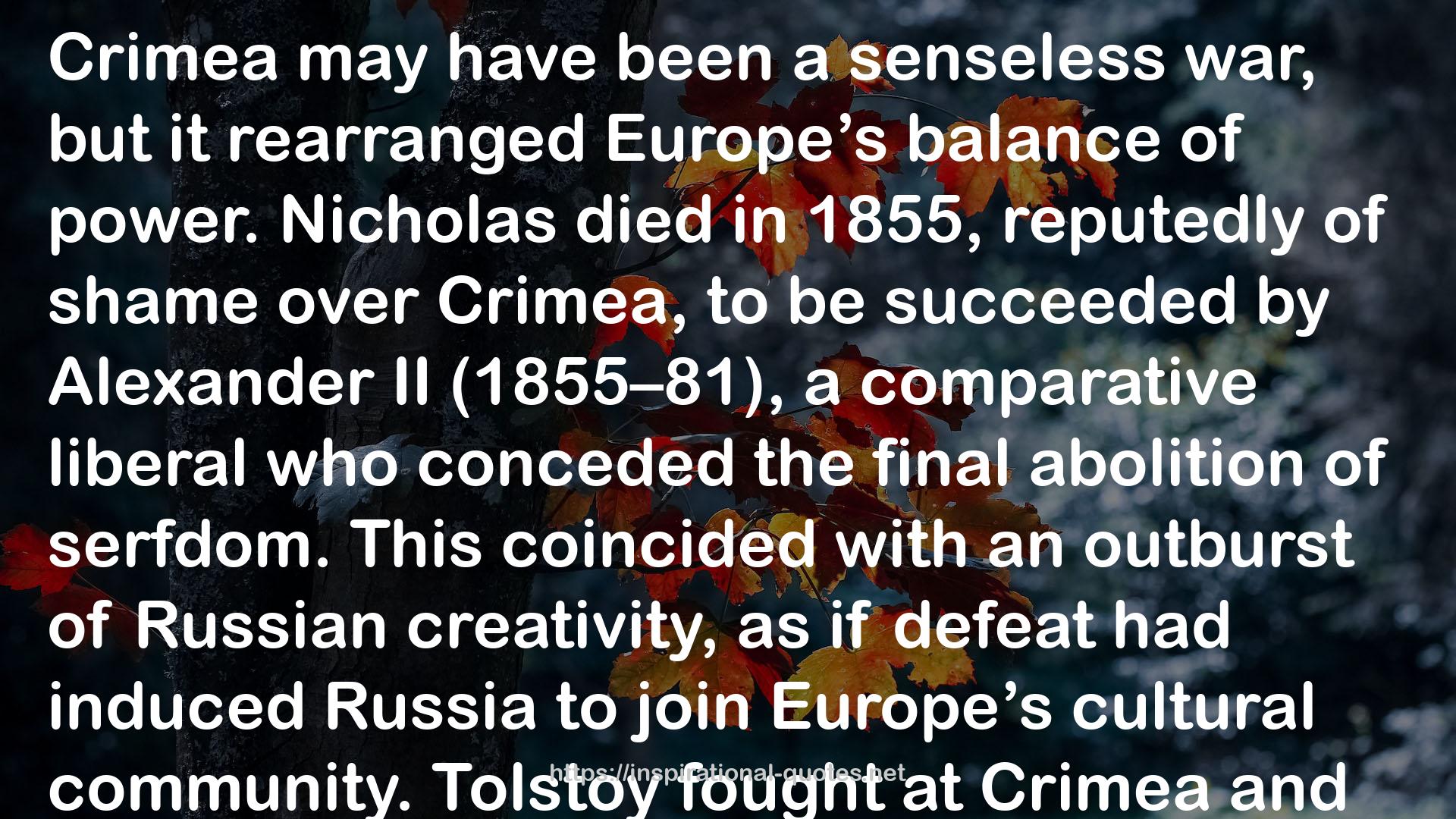" Crimea may have been a senseless war, but it rearranged Europe’s balance of power. Nicholas died in 1855, reputedly of shame over Crimea, to be succeeded by Alexander II (1855–81), a comparative liberal who conceded the final abolition of serfdom. This coincided with an outburst of Russian creativity, as if defeat had induced Russia to join Europe’s cultural community. Tolstoy fought at Crimea and brought the vastness of Russia into the drawing rooms of Europe. Dostoevsky brought its moral complexities. Russian composers such as Tchaikovsky, Mussorgski and Borodin and, soon after, the dramatist Chekhov were among Europe’s most inventive and popular artists. Alexander’s Moscow did not become a second Rome, but St Petersburg (Russia’s capital from 1712 to 1918) became a second Paris. "
― Simon Jenkins , A Short History of Europe: From Pericles to Putin
